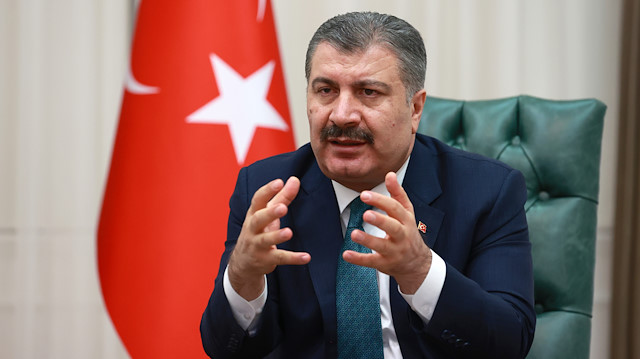
Fahrettin Koca, James Campbell list grievances, shortage of health care staff amid COVID-19 outbreak
Turkish Health Minister Fahrettin Koca and James Campbell, director of the health workforce for the World Health Organization, penned an editorial on the challenges frontline workers face amid the pandemic.
According to the editorial, Financing and Protection for the Health and Care Workforce, across the world there was a shortage of 18 million employees in the health sector, mostly in low and lower-middle income countries.
Although health care employees were quick to respond to the outbreak, they faced many difficulties such as "accelerated rates of infection and deaths, lack of adequate personal protective equipment, social discrimination and attacks, and the dilemma of working in COVID-19 settings and returning home to care for friends and family members."
“…Studies showed that one in four health workers reported depression and anxiety, and more than one in three had insomnia,” it added.
In the early days of the pandemic, approximately 14% of the health workers were infected with the virus, the article said, adding independent studies pointed out that those with black, Asian and minority ethnic background experienced disproportionate risk of infection.
Turkey's one million health personnel and support staff were a key factor in its fight against the outbreak as well as the family physicians and health teams who not only contributed to controlling the virus but also maintained essential services. Furthermore, Turkey recruited additional 44,000 health personnel in response to the virus crisis.
“In parallel, timely access to personal protective equipment to ensure the safety and protection of health personnel was prioritized for domestic use, but out of international solidarity, Turkey also sent protective and medical equipment to 156 countries and nine international organizations,” it said.
According to the WHO estimates, vaccination of one-fifths of the global population requires more than 1.1 million full-time-equivalent health workers and some high-income countries started recruiting additional staff for their immunization program.
However, it added: "Low-income countries, with existing shortages of health workers and constraints on public sector wage bills, will be unable to do the same. While vaccines might be equitably allocated, health workers to deliver them are not evenly distributed."


